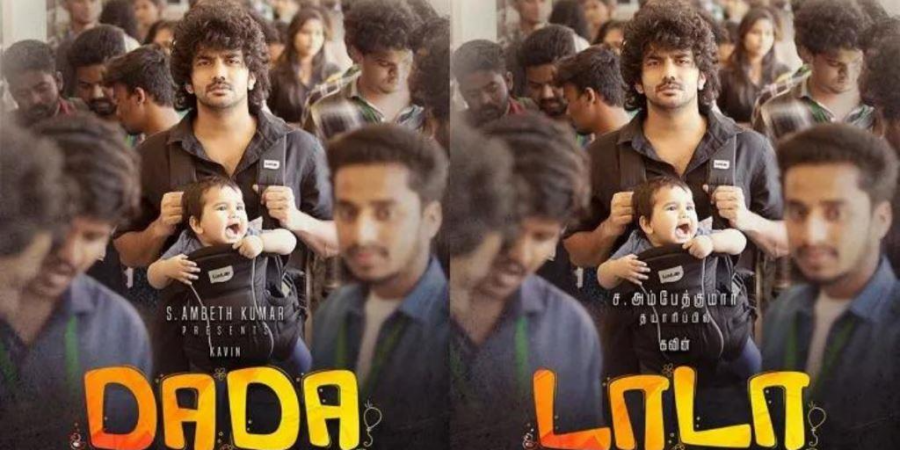

In his heartfelt drama DaDa, directed by Ganesh K Babu, a young guy grappling with unexpected parenthood with great maturity is shown. This is also a poignant coming-of-age story of a young, aimless college student who is forced to embrace fatherhood after everyone has given up on him, including his family.
Kavin and Aparna are shown laying together in the opening scene of the movie. While we hear an early-morning argument between a couple in the adjoining apartment, Kavin is still asleep and Aparna is content to stare at him. In the following scene, Aparna is sobbing after finding out she is pregnant, and Kavin advises her to abort the child because they aren't ready to become parents just yet. Aparna opposes the concept of abortion. Kavin and Aparna make the decision to live together and seek safety in a friend's residence. Living together gets difficult as they prepare to become parents because they start arguing about insignificant things. When Aparna warns, it gets to the point where Kavin accuses him of causing them to live such a wretched life.
The most energizing thing about DaDa is that it makes a very crucial point very clear: parenting is gender neutral.One of DaDa's most refreshing features is that it makes a very crucial point extremely clear: parenting is gender neutral. In raising a child, both the mother and the father have important roles that cannot be compared or measured. The film doesn't attempt to paint the mother in a negative light, despite the fact that it illuminates Kavin's journey of becoming a better man and father as a result of parenting his son alone. I think this is a really good part of the movie and the writing. It also makes no attempt to elevate the status of a parent raising a child on his own. Even at a pivotal point in the film, when Kavin and Aparna reunite, that scene is handled sanley.
THE MOVIE'S PLOT:revolves around two carefree college students, Manikandan (Kavin) and Aparna Das (Sindhu), who have an accidental baby that is not supported by either of their families. Forced to live independently, they take on a lot of responsibilities, but because Manikandan is impatient and not serious even after they start living independently, they argue a lot, which causes them to misunderstand each other and eventually leave their child in the hospital.
When Kavin comes back, he is horrified to see that Sindhu has abandoned the child, which forces him to place the child in an orphanage. However, after he gets out of the orphanage, he cannot bear to part from the child and takes him back.
What is promising about Ganesh K. Babu is the way he believes in craft and presentation. He has reduced the typical way of creating tension through verbal communication. The setting is used in the first half to communicate the difficulties in the lives of the lead pair. As life becomes less complicated, the frames become airier. The film’s cinematography also uses silhouettes and steady shots to convey the drama. The movie’s second half, which usually contains conflict and the final act, is interestingly humorous and light in Dada. The fact that the movie still managed to move me emotionally in the climax feels strangely surprising. During a song in the second half, the director includes visuals from the flashback campus love story of the lead pair. Which again added to the overall minimal philosophy of filmmaking.
If you look at the promotional material and the title, Dada looks like a take on single parenting. But the focus on single parenting is pretty minuscule. It was more like a backdrop to pitch a relationship drama about how lack of communication and petty ego can cause significant relationship issues. There is nothing poignant about Dada. But it is a straightforward and on-point drama that eventually puts a smile on your face.
ONE - LINE REVIEW OF THE FILM:
A highly regarded, charming, and heartwarming picture from an inexperienced technical team, it is worth seeing more than once. The film's magnetism and sense of fulfillment are incredibly vivid.
One worthwhile conclusion is:
We would like to thank Harish Kumar, who played the role of Amit (the hero's friend) in this movie and previously played the endearing role of Chinese Kumar in Mudhal nee mudivum nee. Despite all the praise Kavin has received for his acting and excellent script selection, he is living up to every character that he is given and turning into a person that we would all want as our friend in real life.
Budget for the film: 4–5 Cr (it's a hit; at the end of the first week, it had already made 9.3 Cr)
Cons: Despite the excellent film overall, there were a few misplaced background score and music tracks.
